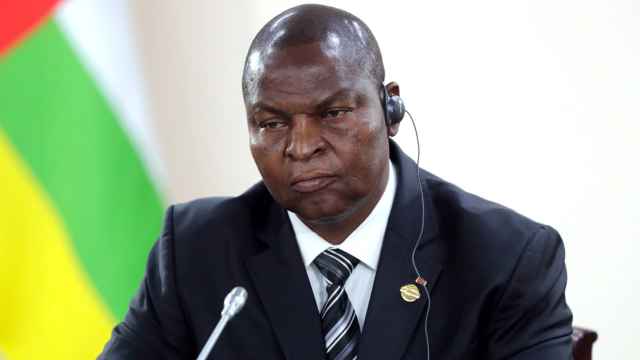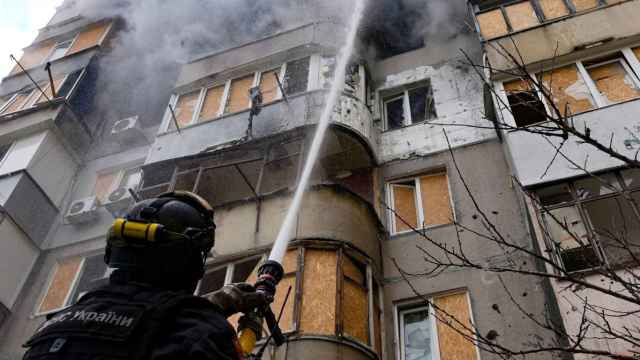The Foreign Ministry has proposed scanning the fingerprints of people applying for Russian entry visas from July 1, 2014, in the interests of "national security."
Under the pilot project, applicants will have all of their fingerprint patterns scanned at Russian consulates in Britain, Denmark, Myanmar, and Namibia, and at Moscow's Vnukovo Airport, according to the draft presidential decree, posted Wednesday on the unified government legislation portal.
The ministry must notify the countries whose citizens would be affected by the pilot project by June 15, 2014.
The draft decree did not say how long the pilot project would last or when other countries would be made subject to it.
A note accompanying the decree said that the measure will improve the ability of Russia's security services to clamp down on illegal migration and prevent terrorist suspects from entering the country.
The authorities have stepped up their attempts to thwart terrorists in the wake of two bombings in the southern city of Volgograd in December that resulted in the deaths of at least 34 people.
The accompanying note also described the draft legislation as a "timely response" to the European Union's plans to next year start taking the fingerprints of Russians applying for visas to its member states.
The bloc has repeatedly put off plans for a visa-free regime with Russia, citing the country's poor human rights record as a reason to delay the deal, which has been ongoing for more than ten years.
Russia's Federation Council last month approved a law making it mandatory for all Russians applying for an international passport to provide fingerprints starting Jan. 1, 2015. The information will be stored in a chip embedded in travelers' passports.
A Message from The Moscow Times:
Dear readers,
We are facing unprecedented challenges. Russia's Prosecutor General's Office has designated The Moscow Times as an "undesirable" organization, criminalizing our work and putting our staff at risk of prosecution. This follows our earlier unjust labeling as a "foreign agent."
These actions are direct attempts to silence independent journalism in Russia. The authorities claim our work "discredits the decisions of the Russian leadership." We see things differently: we strive to provide accurate, unbiased reporting on Russia.
We, the journalists of The Moscow Times, refuse to be silenced. But to continue our work, we need your help.
Your support, no matter how small, makes a world of difference. If you can, please support us monthly starting from just $2. It's quick to set up, and every contribution makes a significant impact.
By supporting The Moscow Times, you're defending open, independent journalism in the face of repression. Thank you for standing with us.
Remind me later.





